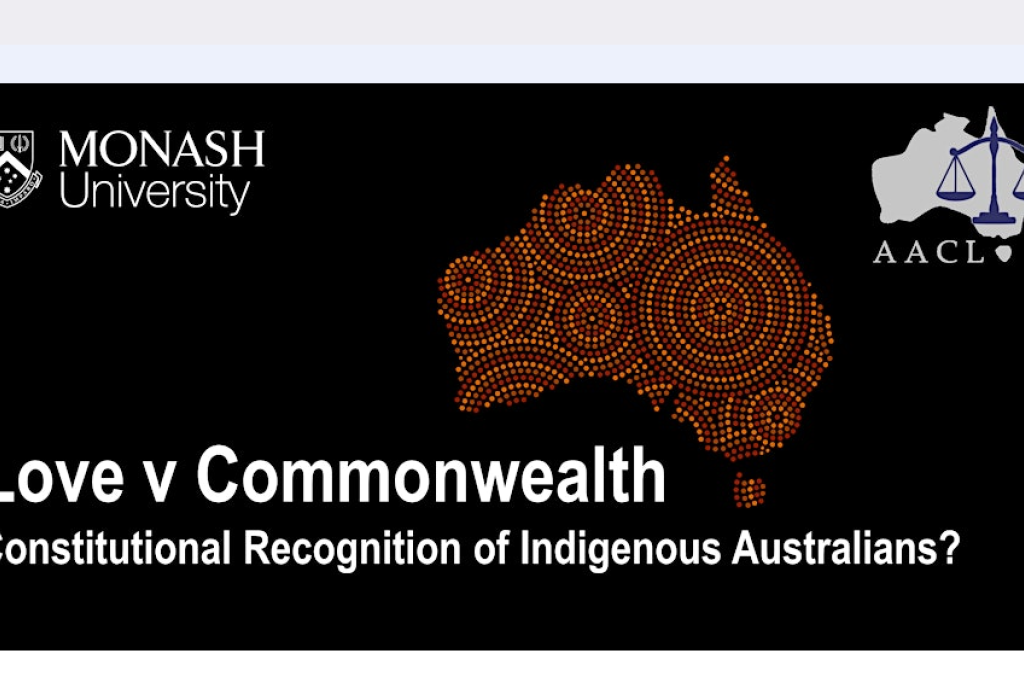
In the recent case of Love v Commonwealth, in powerful judgments reminiscent of Mabo v Queensland [No 2], four judges of the High Court declared that Indigenous Australians can never be "aliens" for the purposes of s 51(xix) of the Australian Constitution. In strong dissents, three judges refused to introduce a race-based distinction into the head of power.
With political debate about a referendum largely on hold, has the High Court achieved constitutional recognition of Indigenous Australians by judicial interpretation of the Australian Constitution? By adopting Brennan J's tripartite test of indigeneity in Mabo, has the High Court inadvertently entrenched a rigid notion of what it means to be Indigenous? If the result in Love is another expression of the "deeper truth" from which native title springs, are there any other expressions waiting to be uncovered? By recognising that Indigenous elders have the power to say who is and who is not Indigenous, has a majority of the High Court fractured sovereignty, or have they ruled out Indigenous sovereignty by bringing Indigenous people within the concept of "the people"?
Speakers
Stephen Keim SC
Stephen Keim SC was called to the Bar in 1985 and took silk in 2004. Stephen has a broad practice and has worked in most areas of law. He appeared for the plaintiffs in the High Court in Love v Commonwealth, and has also appeared in a number of other constitutional cases, including the recent case of Spence v Queensland.
Timothy Goodwin
Timothy Goodwin was called to Bar in 2014 and practices primarily in commercial and public law. He appeared for the State of Victoria intervening in Love v Commonwealth. He serves on a number of boards, including as a Board Member of the Victorian Equal Opportunity and Human Rights Commission. Tim is a member of the Yuin people of the South East Coast of New South Wales.
Melia Benn
Melia Benn was called to the Bar in 2018, with previous experience as Counsel Assisting the Coroner and as a senior lawyer for the Office of the Director of Public Prosecutions. Melia is a descendant of the Mamu and Gungangji peoples, and is one of only two Indigenous women at the Queensland bar.
Dr Shireen Morris
Dr Shireen Morris is a Teaching Associate at Monash Law School and a Post-Doctoral Fellow at Melbourne Law School. Her new book A First Nations Voice in the Australian Constitution will be published by Hart Publishing later this year. Shireen previously worked at the Cape York Institute and worked extensively on constitutional recognition issues.
Register your attendance here for access to the online event.


